US ARMY UNIFORM IN WORLD WAR Ⅱ
In the late 1930s, the U.S. Army introduced a new type of trousers to replace the old pencil service trousers, made of khaki canvas.
After the start of the war, some sergeant majors introduced centralized recommendations that were adopted by the military. These recommendations made the uniform more practical in the cold winters of Europe. This is the standardized M-1943 uniform. The M-1943 resembles a jacket, it has a padded layering system with four jacket pockets, a detachable jacket hood, and the addition of field pants and shirt dresses.
Another benefit of this uniform is that the four pockets allow soldiers to carry more provisions and personal items, such as cigarettes and matches.

Although the Army’s 2nd Infantry Division also experimented with camouflage uniforms in Europe and France, all of them were withdrawn soon after. The main reason is that the Nazi army also had practical camouflage uniforms at that time. When wearing experimental camouflage uniforms in the war zone, it was easy to be attacked by the Allies as Nazis. Soldiers also reported that public olive clothing provided better concealment on the battlefield.

Soldiers in the Pacific theater used the M-1943 summer combat uniform, when the combat area commander had the authority to let soldiers roll up their sleeves and open their collars. But there are still many American soldiers who choose to tear off their sleeves.

US ARMY UNIFORM IN VIETNAM WAR
With the advent of the Vietnam War, there was a rapid development of basic weapon clothing and equipment, and the US military used more technological materials to make military uniforms. In order to cope with the sultry and humid environment in Asia, the material of the windproof jacket and trousers has been updated. The pockets of the clothes have also been divided into many practical functions, and the soldiers’ shoes have been replaced with fast-drying nylon uppers.
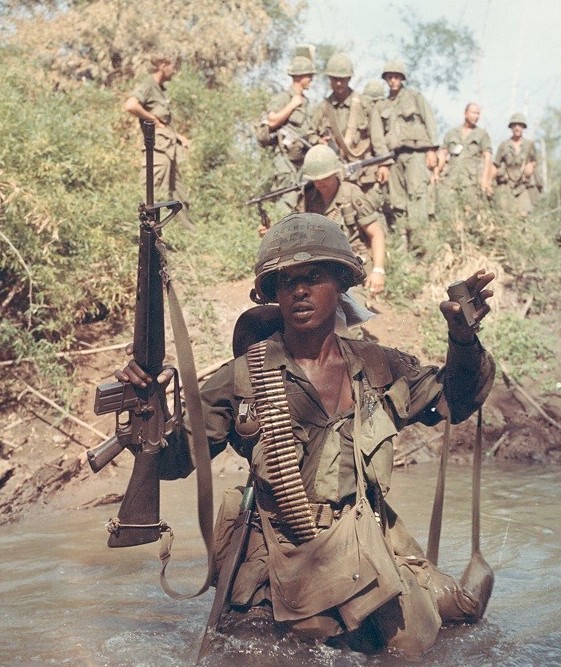
US ARMY UNIFORM 1975
In 1975, Army nurses wore the exact same clothes as ordinary soldiers, except that they used radiation-resistant cotton tropical combat uniforms.

The Special Forces quickly realized that they desperately needed a combat uniform that was better suited for concealment in the wild. At first it used experimental camouflage from World War II, but it was soon redesigned to produce a tiger stripe camouflage like the Vietnamese rangers. However, this tiger-striped camouflage still cannot be satisfied by the special forces, mainly because the redesign and production of combat uniforms is not what the official hoped, and as a result, the production cost of the production unit has been reduced, resulting in many quality problems in the new camouflage uniforms. This is the US ERDL camouflage.
US ARMY UNIFORM FROM 1981 TO 2004
After the arrival of 1981, the U.S. military finally had its iconic combat uniform. At that time, the U.S. military all over the world first used camouflage uniforms as combat uniforms, and the whole army distributed jungle camouflage. At that time, the US military wore jungle camouflage to fight the world, Grenada in 1983, Panama in 1989, Haiti in 1994, and the Middle East in 1990. This version of the clothing has made minor changes to rank identification, and the Army has also released Kevlar protective vests and new helmets. The cross-country and on-foot capabilities of the redesigned boots give soldiers more comfort in the field and on the ground.

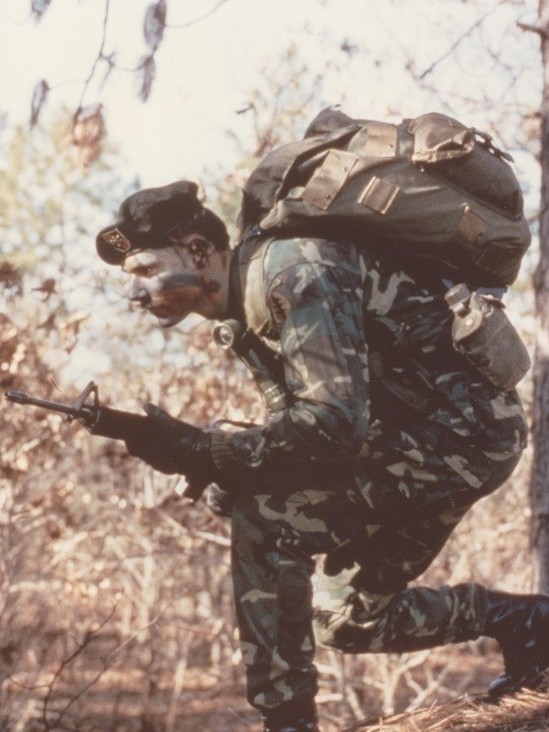
At the same time, the Army also introduced the DBDU six-color desert camouflage uniform, which is also known as the chocolate chip camouflage. At first, desert camouflage was only used for special forces’ military operations in the Middle East. It was not until the beginning of the Gulf War “Desert Storm” in 1991 that the entire army began to use six-color desert camouflage.


Before the start of the Gulf War, special forces members who reconnaissance Iraq in advance complained that the black spots on the DBDU six-color desert camouflage were easy to spot in the desert, so the U.S. military began producing medium three-color desert camouflage uniforms in 1991. Due to the rush of production, the tri-color desert camouflage was issued to only a few soldiers after Operation Desert Storm began. The new three-color desert camouflage was developed based on the soil colors of the Middle East, and also improved the weight of the boots to make the boots lighter. This camouflage was used until 2001 when the U.S. military issued green jungle camouflage to some recruits.
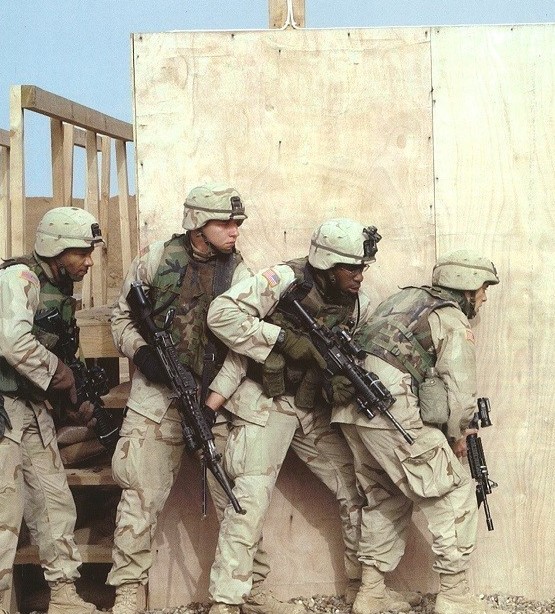
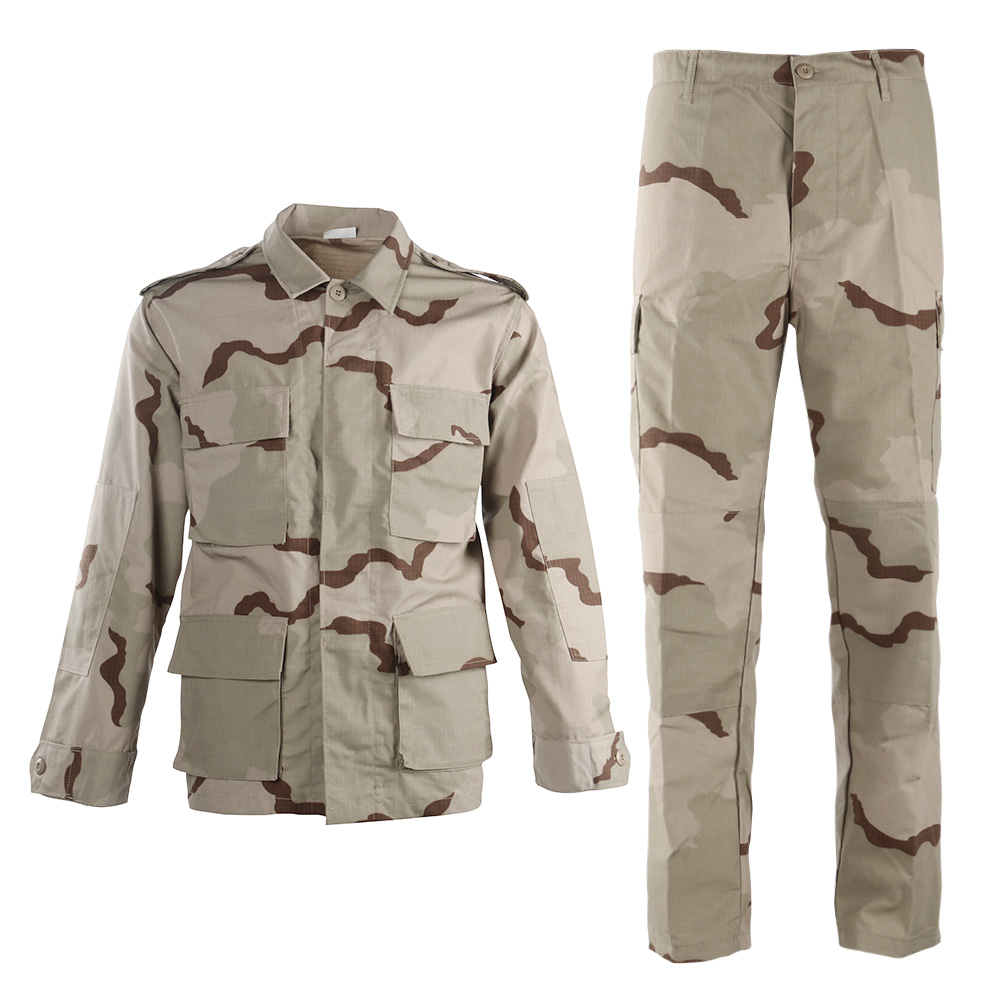
US ARMY UNIFORM FROM 2004 TO 2014
In 2001, the U.S. military launched the BDU (BATTLE DRESS UNIFORM) all-terrain combat uniform, the predecessor of the ACU that we are familiar with. The BDU has made breakthroughs in design. The biggest improvement is the use of flame-retardant materials in large quantities, and the identification began to be placed on the chest. Previously, the troop number was indicated by Velcro. The hat uses an octagonal cap, and the loose top has five pockets, all of which are capped, using the digital camouflage that is common in the world today.

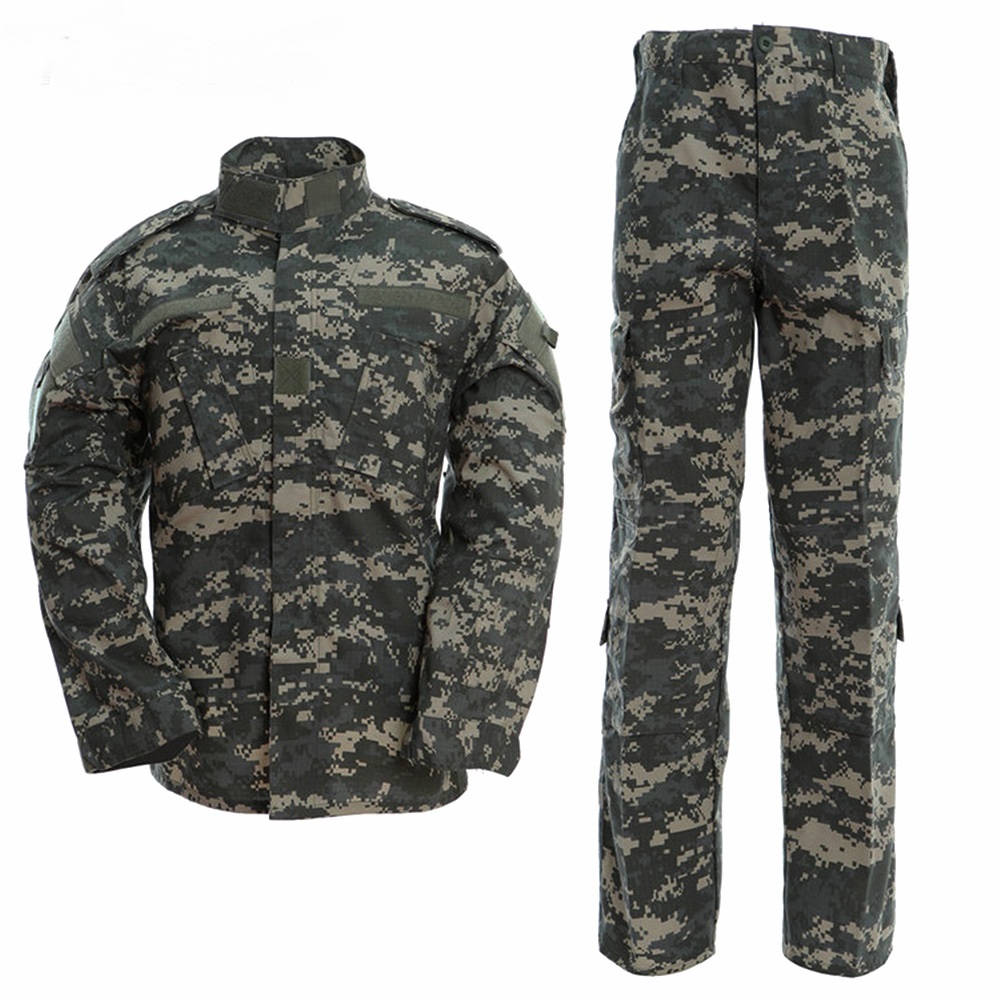
On June 21, 2004, the U.S. Army announced to the outside world that the new army general camouflage combat uniform ACU adopts UCP general camouflage. The new version of ACU will replace all BDU uniforms. The biggest improvement is that buttons are no longer used but zippers are used because buttons are easy to break and fall off easily. (There are still buttons on the pockets). ACU is also known as a cement suit that can be used on all terrains, and the military boots replaced at the same time have a more durable and durable sole.

In 2007, the Army also approved moisture-wicking combat shirts. At the same time, because women are no longer just logistical nurses on the battlefield, more women have combat experience. Therefore, in 2013, the US military designed a new version of the tactical vest for women.
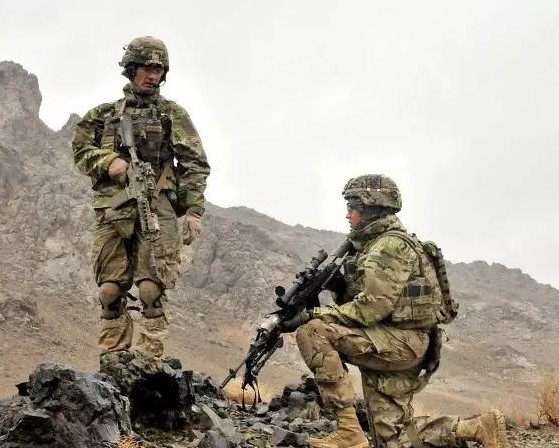

In June 2015, the U.S. Army changed the ACU again. The new version of the ACU replaced the buttons and Velcro in some pockets with buttons, and all of them were equipped with infrared module identification that can identify friendly forces or enemies at a distance.


